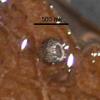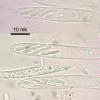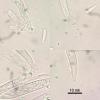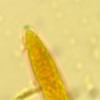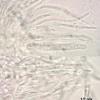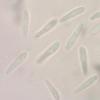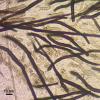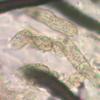
17-01-2026 19:35
Arnold BüschlenHallo, ich suche zu Cosmospora aurantiicola Lite

15-01-2026 15:55
 Lothar Krieglsteiner
Lothar Krieglsteiner
this one is especially interesting for me because

16-01-2026 00:45
Ethan CrensonHi all, On decorticated hardwood from a New York

18-01-2026 12:24
Hello.An anamorph located on the surface of a thin

08-12-2025 17:37
 Lothar Krieglsteiner
Lothar Krieglsteiner
20.6.25, on branch of Abies infected and thickened

10-01-2026 20:00
Tom SchrierHi all,We found picnidia on Protoparmeliopsis mur
It is my first collection of this beautiful genus. I am not sure yet about species exactly, perhaps Venturiocistella uliginosa (following the key by Raitviir, 2004). A single apothecium was found on a leaf of Betula nana (it was loosely attached and ?perhaps originally belongs to Vaccinium uliginosum, the litter in that location contains leaves of this plant too).
Ombrotrophic bog. Coordinates: N60,890502° E68,682159°. Date of collection: 26.06.2014.
Apothecia cupulate, short-stipitate, 370 mk across, whitish with brown seta, hymenium grayish; one single apothecium collected on upper side of the leaf.
Excipulum from textura prismatica, cells about 15 x 7 mk in upper part; hairs brown at base, lighter at the edge, up to 40 mk long, 5 mk broad, granulate; seta up to 200 mk long at base, shorter in upper part, 6 mk broad at base; asci with weak crozier, with euamyloid pore, 50-57 x 6-7.7 mk; paraphyses filiform, not abundant, about 1.5 mk broad; spores fusoid, heteropolar, 11 (9-15) x 2 (1.8-2.6) mk (n=18).

I think it is V. venturiodes. But I do not know V. uliginosa, but I see from the protologue that it has much shorter setae. Also it is said to be without croziers (not figured). Your spores are longer indeed, but maybe varoation? Here is my key:
1. Apical ring of dead asci 2-3 times broader than thick, strongly hemiamyloid, surface of lateral ascus wall and/or ascogenous hyphae faintly but distinctly hemiamyloid, ascospores with +/- attenuated ends, corticolous 2
1. Apical ring of dead asci not broader than thick (Calycina-type), euamyloid or nearly inamyloid, ascus wall and ascogenous hyphae inamyloid (hemiamyloid in V. diversipila), ascospores with +/- obtuse ends, foliicolous 3
2. Ascospores *14-24 x 1.7-2.2(-2.5) µm, slightly to medium sickle-shaped (especially at apex), sometimes helicoid, with a number of medium-sized and small LBs in each half, on bark of Ulex, Great Britain V. ulicicola
2. Ascospores *10.5-14 x 1.8-2.5 µm, straight, with some +/- small LBs in each half, on resin, bark (and cones) of Pinus, Central Europe V. pini
3. Setae max. 100(-120) µm long, spores *8-17 x 2-3 µm, asci arising from simple septa (?also croziers) 4
3. Setae often 100-200(-260) µm long, spores *5-11 x 1.5-2.4 µm, asci arising from croziers 5
4. Spores †12-17.5 x 2-3 µm, asci †32-60 x 6-8.7 µm, arising from simple septa, on leaves (and twigs) of Vaccinium uliginosum, Europe, Asia V. uliginosa
4. Spores †8-13 x 1,8-2,1 µm, asci †26-33 x 6-8 µm, ?arising from simple septa, on leaves of Gaylussacia, N-America
V. gaylussaciae
7. Asci †17-23 x 4.3-6 µ, apical ring very faintly ?blue in IKI, whole ascus wall faintly hemiamyloid (after KOH distinctly IKI-blue), setae c. 9-40 per apothecium, only inserted on flanks, basally lageniform, wall 0.5-1(-1.5) µm thick, light hairs only at margin, on leaves of Betula, Quercus, Populus, in autumn, Central Europe V. diversipila
7. Asci †26-46 x 4.3-6 µm, apical ring rather stongly blue in IKI, ascus wall IKI-, setae c. 80-120 per apothecium, hardly swollen near base, wall 1-3 µm thick, setae and light hairs occurring mixed on whole exterior, on leaves of Vaccinium uliginosum in early summer, Northern Europe V. venturioides


